Dark Autumn Full Guide – Best Colors, Makeup & Styling Tips
This guide has everything you need to know about the Dark Autumn color palette—also called Deep Autumn—including colors, prints, combinations, makeup tips, and more.
Before we begin: if you’re not sure about your season yet, you can get your personal color analysis here. Simply upload the requested images, and a color expert will analyze them and deliver a complete report within 72 hours.
Reading time: 8'
1. Features – Dark & Warm
Dark Autumn gets its name because its main characteristic is darkness, paired with warmth as a secondary feature. Warm colors bring out the best in your natural beauty.

When you look in the mirror, the first things you notice are your dark eyes and hair. Your features often have a high contrast, with the whites of your eyes and your teeth standing out against your darker tones.
1.1 Eyes

Your eyes are a mix of warm tones like brown, green, or golden hues. Some Dark Autumns even have deep blue eyes.
You might notice unique details like erratic borders around the pupil or freckles on the iris.
1.2 Hair

Dark Autumn hair ranges from medium to dark golden brown, dark auburn, or black-brown.
These shades often have warm undertones, and exposure to sunlight can create natural highlights like golden, caramel, or bronze tones.
1.3 Skin

Your skin has neutral-to-warm undertones, giving it a golden or bronzy glow. You can wear both gold and silver, but gold tends to be more flattering.
In winter, your skin might appear paler, and freckles are also common for Dark Autumns.

In the case of Rashida Jones, her skin is medium with warm undertones.
1.4 Contrast
Your contrast level is typically medium to high. Dark eyes and hair often contrast strongly with lighter skin, creating a striking and bold look.

If your skin is darker, the contrast is more subtle but still noticeable.
2. Color dimensions

The Dark Autumn palette leans toward warm tones, with yellows and golden undertones dominating. You’ll see fewer blues, but turquoise is a standout color in your palette.
Your colors are deep and rich, much like the hues of late autumn evenings. These shades are complemented by lighter and medium tones to create contrast and balance in your outfits.
3. Color Palette

Dark Autumn colors evoke the warmth and depth of late autumn. Think of golden sunsets, shadowy forests, and the richness of fallen leaves.
Your palette captures both light and dark shades to reflect the natural contrast in your features.
3.1 Best Colors
Your best colors include:
-
Warm shades of beige and yellow as light neutrals.
-
Dark chocolate browns and warmer blacks with green undertones as dark neutrals.
-
Rich jewel tones like olive, teal, and rust.

Avoid cool, icy blacks from Winter’s palette; warmer shades work much better with your coloring.


3.2 Worst Colors

Stay away from cool and light colors like whites, pastels, and frosty shades.

Muted or dusty colors, like dusty blues or pinks, can make your complexion look dull. Instead, stick to warm and rich hues that enhance your natural warmth.
If you want to be sure you always choose your Dark Autumn colors, you can check out the Color Palette + Makeup Palette Pack. It’s an easy and reliable way to verify if clothes or makeup products align with your color palette.
4. Metals & Accessories
Dark Autumn pairs beautifully with metals like bronze, brass, copper, and gold. Pewter and warmer shades of silver can also work, but cooler silver tones might clash with your warmth.

For finishes, go for less shiny, more textured metals like antiqued or hammered styles.
Accessories with warm, reddish gemstones like carnelian, garnet, or jasper will bring out your natural glow. Emeralds set in yellow or rose gold are another excellent choice.
5. Color Combinations
Dark Autumn’s best color combinations mimic the natural contrast in your features.
Pair light neutrals, like warm beige, with deep accents, like dark olive or rust. These combinations create a balanced, flattering contrast.

Your contrast is based on value, not hue, so mixing light and dark tones is key. For example, pair a warm camel with dark chocolate brown for a harmonious yet striking look.
6. Prints
6.1 Colors
Choose patterns that use only Dark Autumn colors. A small amount of clashing color can work, but avoid prints dominated by cooler shades.

6.2 Contrast
Patterns that reflect your natural high contrast will suit you best. Avoid overly subdued or low-contrast designs.

6.3 Pattern arrangements
Ideal patterns for Dark Autumn include bold, stylized shapes inspired by nature, like leaves, ovals, or wood textures. Retro and paisley patterns are also great options.
Avoid small, dense patterns or stiff geometric shapes.

7. Makeup
Dark Autumn makeup focuses on enhancing your warm and rich tones. Avoid icy shades and embrace warm, earthy colors for a natural, harmonious look.
7.1 Foundation & concealer

Choose a foundation with a matte or satin finish to complement your neutral-warm undertones.
Avoid dewy or shiny finishes, as they can clash with your natural warmth. Steer clear of pink or blue-based foundations, as they don’t suit your coloring.
7.2 Bronzer & contouring

Bronzer is a must-have for Dark Autumns. It brings out a healthy, golden glow.
Choose a shade that’s not too orange but deep enough to contour effectively. Use it sparingly to create bold shadows that still look natural.
7.3 Blush Palette

Opt for blush shades that align with your skin tone. Lighter skin tones look great with pinkish reds, while darker tones should go for deeper reddish or brownish shades.
Avoid pink-based blushes, as they can clash with your warm undertones.
7.4 Lipstick

Choose lipstick colors based on your coloring depth. Lighter tones look good with burnt oranges or pinks, while darker tones shine with deep reds or browns.
Stick to matte or slightly shimmery finishes, and avoid high-gloss or icy tones.
8. Eye Makeup
8.1 Eyeshadows

Neutral eyeshadow colors like beiges, golds, and olives are perfect for your palette. For accents, try warm purples, greens, and blues.
Avoid icy or glittery finishes; instead, go for matte or subtle metallics.
8.2 Mascara

Brown-black mascara works best for Dark Autumns, but you can also try very dark grey or green for a unique look.
Avoid blue-black mascaras, as they can appear too cool for your coloring.
8.3 Eyeliner
Opt for dark purple, olive, green, and blue eyeliners.

A helpful tip is to choose an eyeliner in a shade similar to your eyes to enhance them.
Avoid black, as it can be too harsh. Consider using your darkest color, mink brown, for a more flattering look.
9. Conclusion
With the Dark Autumn palette, you can build a wardrobe and makeup collection that highlights your natural warmth and depth. From golden tones to earthy accents, this guide will help you look and feel your best in every outfit.
To dive deeper into your season, the Dark Autumn Guide offers a comprehensive resource.
It expands on the information from this blog, covering best and worst colors, color combinations, and more—all packaged in a 30-page PDF you can conveniently access anytime on your phone.
Written by Alexandra Stan





